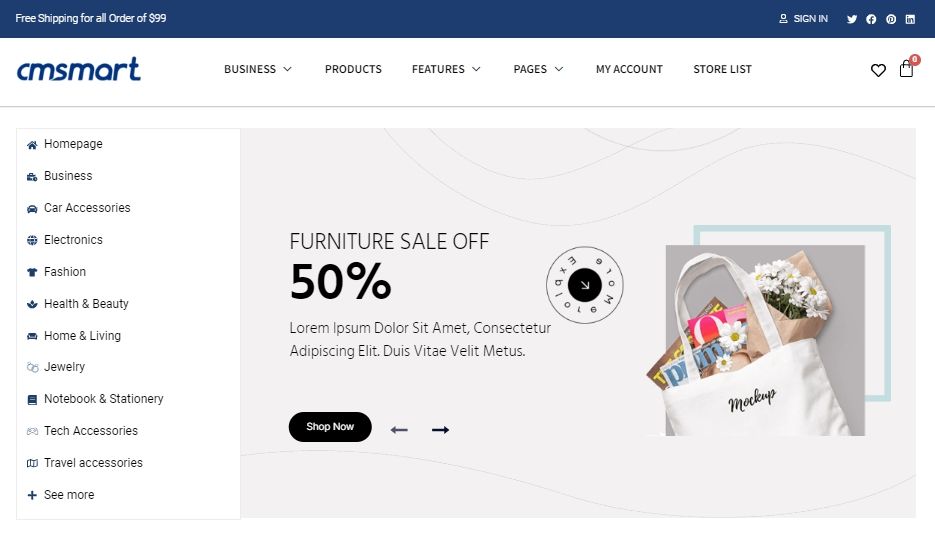Other Usefull Contents
You can see many success stories from our customers, and you may be one of them in the future
If you intend to start an online business but don't know which industry you should join, a suggestion for you is digital printing. As you know, along the roads, from urban to rural, signs from simple to complex are displayed a lot on the street.
Read MoreRecently, we have heard enterprises have been talking a lot about Magento 2 migration because they've considered it as the big expansion plan of business. It seems to be true for enterprises but is it for both small and medium business? Whether they shoul
Read MoreThere is a fact that web owners usually overlook to optimize SEO for Magento product pages. I found that a lot of merchants with a large catalog and use generic product descriptions and images provided by the manufacturer forget this aspect.
Read More
.png)
.png)













What is GDPR?
GDPR stands for General Data Protection Regulation that aimed at improving personal data protection for European citizens and it has replaced previous regulations implemented over two decades ago. Although the regulations are based in Europe, it means that any businesses, from any regions, have been working with Europe customers will also be affected and need to change. Magento themselves have stated that you should probably remain GDPR compliant, even if your store isn’t based in the EU.
How GDPR affects your Magento store?
The fines on non-compliance might be up to €20 million, or 4% of your prior year’s worldwide annual revenue. So, here are some things you should pay attention:
IP tracking and checking:
It is the process of taking a visitor’s IP address and that IP address will be used to motivate other actions. It will relate to a visitor’s location, currency, or geographic preferences. When you want to set some rules for specific customers, change SKU or modify pricing, it will be useful. Let's take an example of Magento One step checkout extension in Cmsmart, use IP tracking to provide the suggestion for a region, currency, zip codes, etc. in the checkout process.
According to the new GDPR guidelines, when a customer from the EU visits your site, you will need to make sure they are asked explicitly if their IP address can be collected and stored. One more thing: any EU visitors are able to either accept or reject your use of their IP address.
Personalized content
There is one fact that consumers tend to buy more from the stores that provide a great personalized experience. This personalized content requires the use of cookies in order to store what the GDPR regards as personal information. To keep complying GDPR, giving EU consumers a choice when it comes to the use of cookies. A statement like " If you use this site, you accept cookies" seems not to be enough, instead of that, what you need is to make sure that the visitors have made a clear, affirmative action to accept cookies, and of course with a choice to reject them.
Relevancy and Minimization
Only necessary data should be collected to cause multiple copies of that data should not exist. Say no to irrelevant data. The good news is this step will improve the loading speed and reduce time to load, but the bad news is that it may be a lot of time-consuming work. For example, ecommerce websites usually use email as the main channel to contact customers, using a Magento extension for ordering email is so crucial, if order information is stored in multiple locations, you may have to redirect to a single, pseudonymized, location, or ensure that order email data is deleted as soon as it is no longer deemed relevant.
The last words,
This is not an exhaustive list for your Magento store but still, need to be considered when it comes to GDPR. To analyze more deeply and get overview information about regulations, go to the official website of GDPR.